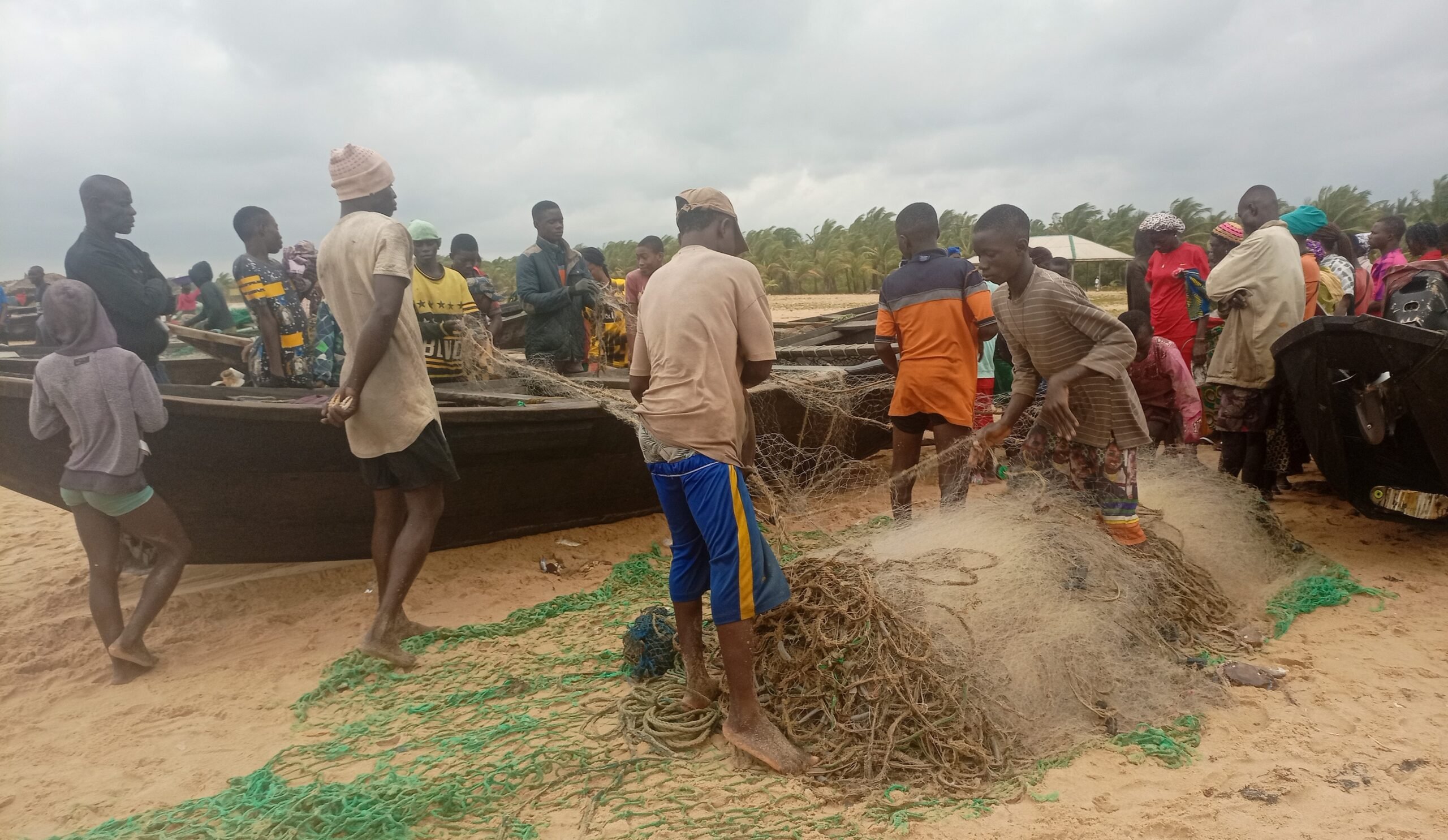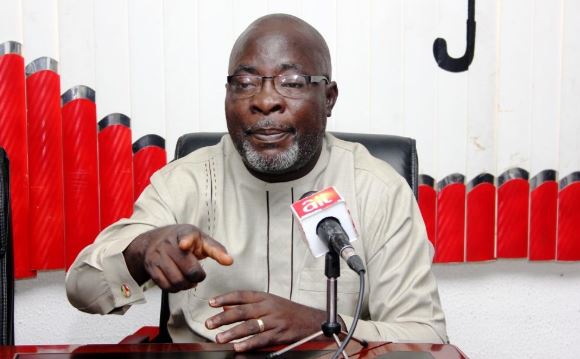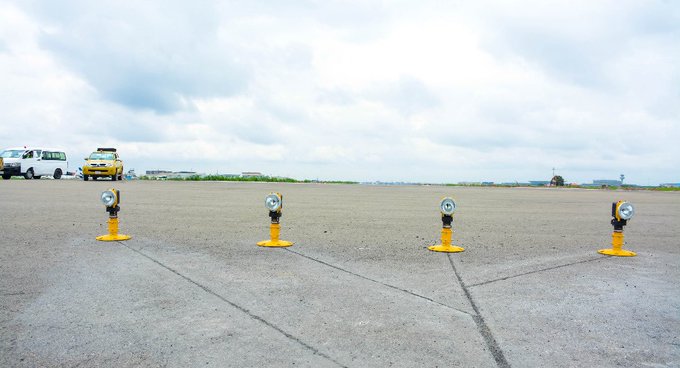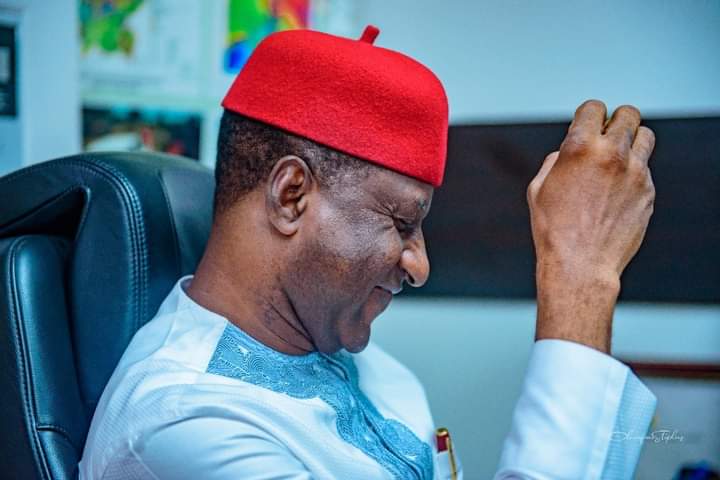This report was produced in partnership with the Pulitzer Center.
Sitting on a low plastic stool, her attention was glued to the bowl of tiny fresh fish she had just brought from the creeks. Fitila Asogbon, 22, strapped her three-month-old baby on her back, while her three-year-old reclined on the wooden door of the bamboo house. Even as she attended to questions from the reporter, she continued to peel the scale from the fish, yanking out the intestines and washing the fish with rainwater collected in a white plastic bowl. Fitila thereafter dumped the finished product in the waiting black pot, getting ready to move inside to prepare soup for breakfast.
Fitila, a hairdresser in a coastal community in Ilaje LGA of Ondo, one of Nigeria’s oil-rich states, had no reason to worry about the COVID-19 pandemic. For the young lady who had a young family to feed and other responsibilities, she just wanted to survive the untold hardship the restrictions had brought. The economy was badly affected and only a few customers patronised her. Testing for the virus was the least on her mind.
At the community health centre, which is a 15-minute walk from her house, health workers waited for residents to come and get tested for the virus. But Fitila was unbothered and so were many residents. They’d heard about it and they’d also learnt how deadly it is; but to them, it will wreak more havoc in the hinterland before it gets close to the coastal areas. When the vaccines also came, they tarried. Then, it became a matter of the ‘first to take it’.
Advertisement
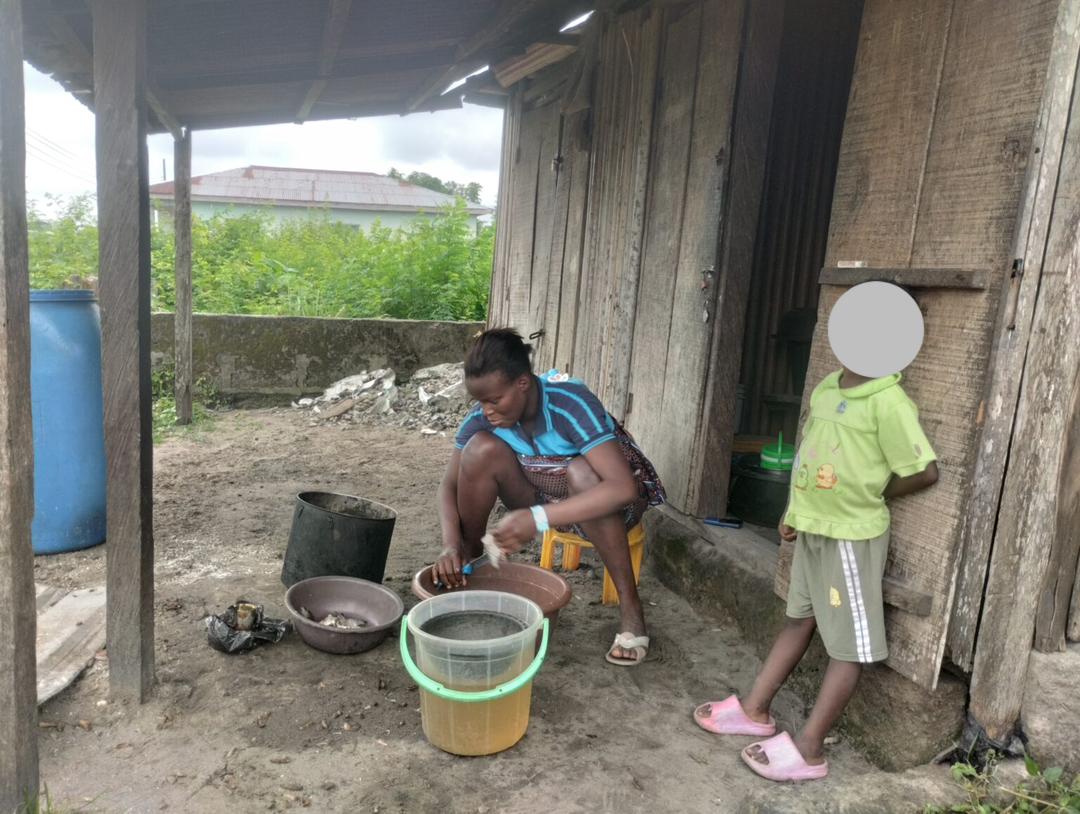
“I intentionally didn’t go for the COVID-19 test because I felt I didn’t have it. Although I’ve heard it kills people after some days, I don’t think it will get here. It’s only affecting people in the city and I’ve not heard that anyone around me contracted the virus,” Fitila said.
“I have heard a lot of things about the virus, I believe some and I don’t believe others. I don’t want anything to happen to me, so I stayed away from the testing and vaccination. Thank God I’m not showing the symptoms.”
About a five-minute walk from Fitila’s house is the apartment of 21-year-old Leke Ojatuase who shared the same sentiment as the mother of two. He was peeling a melon seed he had freshly uprooted from the back of his house to make a herbal concoction. Leke claimed that the seed of the fruit is medicinal and he relies on it whenever he’s indisposed. On hearing about the effects of COVID-19, he began to fortify himself with the concoction — even to date.
Advertisement
Leke recalled how town criers rang bells across the community to inform residents that the COVID test was free of charge, but most people remained at home, unswayed as they continued with their daily activities. Everyone was wary, he said. They didn’t want to be locked up in isolation centres.
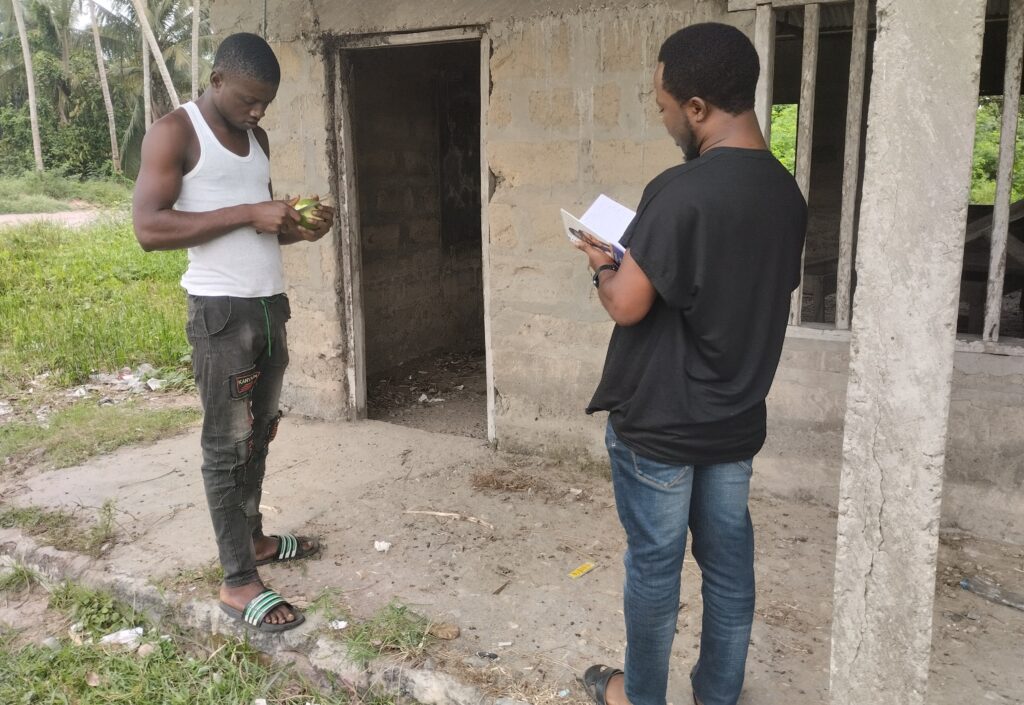
“The virus is not here. So, I’m not bothered about testing and vaccination since I don’t have it and I don’t know anyone who has it. I heard that for anyone who contracts the disease, it’s over for them. Death is the next thing,” Leke said.
“I heard the vaccine caused a serious reaction for some people who took it. We heard a lot of rumours about the negative sides of vaccines. You know I’m a man. I don’t want to take any vaccine that can reduce my chances of having children in the future.”
At Ode-Etikan, a nearby fishing community, Iseoluwa Okorisa, a businessman in his late 40s, was scared at first. He had heard that the vaccine could lead to impotency, some said it contained a microchip that was designed to control the population.
Advertisement
Although Iseoluwa already has eight children, he was initially hesitant to take the vaccine.
“I didn’t go and a lot of people didn’t step into the health centre either. Then a friend of mine went to take the vaccine and he came back to convince me that there is no way it can affect my reproductive system,” Iseoluwa said.
“So, I decided that even if some of my friends had decided not to take the vaccine because of the fear that it may affect their system, I have to go and take it since I already have enough children. Then, I started convincing others too after I took mine. So many people are still sceptical about taking the vaccine.”
While accompanying Kalejaye Ombowadun, a cleric and fisherman in his late 50s, from the expansive seashore in Araromi community where he had just returned from a fishing expedition to his house, he spoke about his initial disbelief about the disease and indifference to the vaccine.
Advertisement
The information about the devastation of the virus got to him while hearsay about the vaccines made its way through the community to his corridor. He waited until some people took the jab.
“At one point, I felt I had nothing to lose. I already have a lot of children. On the other hand, I thought that the government may start denying some people who do not take the virus access to some opportunities or programmes. I also realised that a time may come when those without vaccination cards may not be able to travel or access certain locations. So, I braved it and took the two required shots,” Kalejaye said.
Advertisement
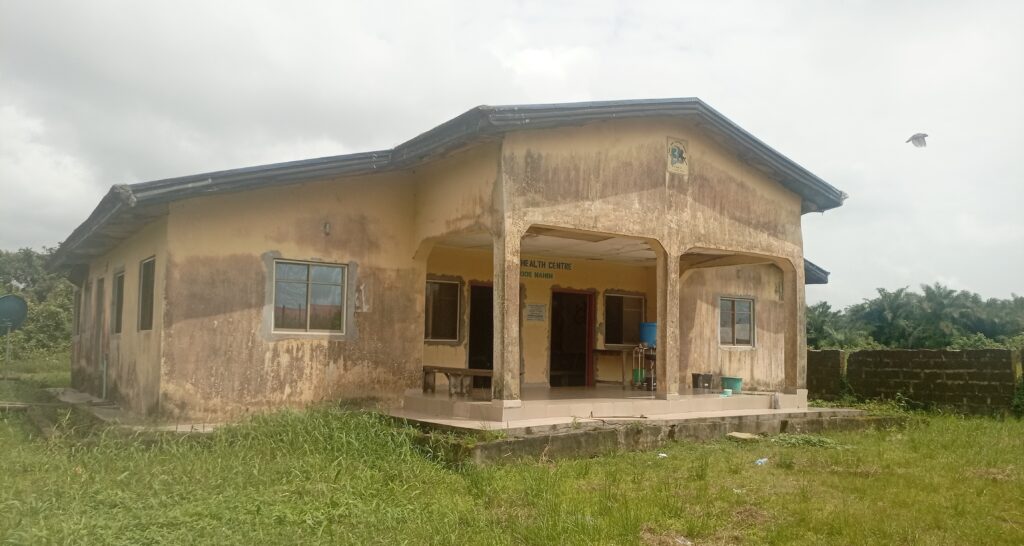
For Talabi Omomobi, if the vaccine would stop her from having more children as her colleagues at the fish market told her, so be it. After six children, she said if the function of the vaccine would add to the contraceptive implant in her arm, the better it is. Her relatives in the city had enlightened her on why she needed to take the jabs and assured her it had no threatening side effects.
“As a fish seller, I come to the market very often and I meet a lot of people. My customers come from the eastern part of the country, some parts of the north and south-west too. How do I know who is infected or not? I don’t want to die yet. So, I rushed to take the vaccine. Among my colleagues who are women at the market, I think only about two of us have been administered the vaccine. Others often make jest of us,” she laughed.
Advertisement
“It’s really hard to convince people. The misconceptions that have been planted in their minds may take a longer time to go away. They don’t even think the COVID-19 disease exists in the first place. Some say it’s just malaria that was blown out of proportion, while some think it is just a hoax.”
‘YOU CAN’T WAGE WAR AGAINST A MAN WITH MANY CHILDREN’
Advertisement
For coastal communities in the Ilaje-speaking area of south-west Nigeria, fishing is the major occupation of the people. With these communities seeing incessant childbearing as critical to their fishing businesses, the fear of a vaccine that can affect fertility was unimaginable.
Igbasan Asonja, the traditional ruler of Temidire community in the LGA, said the Ilajes have a cultural belief that you do not count your children. So, when you ask them the number of children they have, they do not give an exact figure. Most times, they refuse to answer the question.
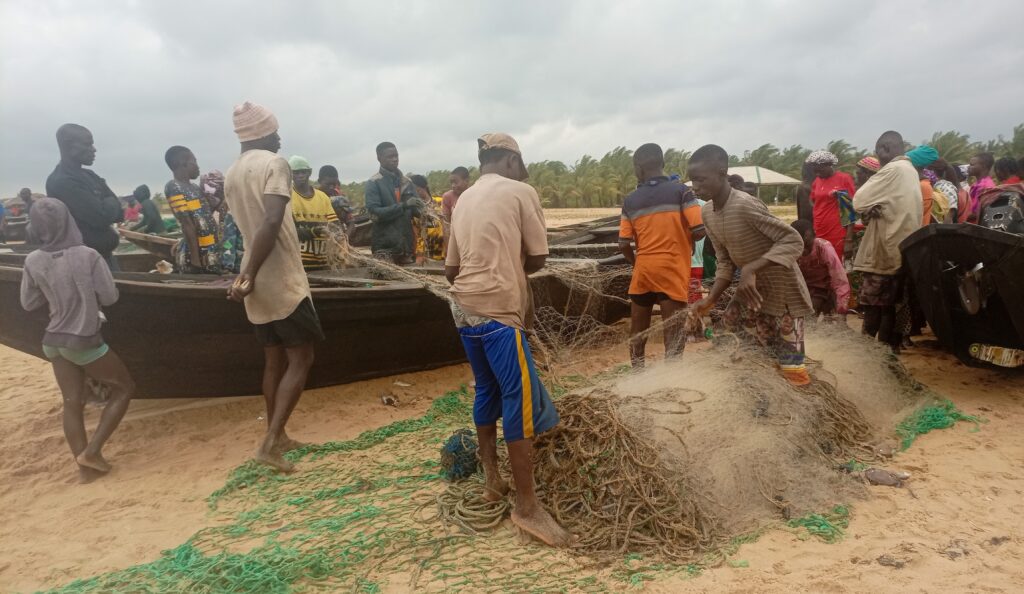
Asonja noted that it is cultural for the Ilaje people, who live along the coastline of the Atlantic Ocean, to have lots of children. The belief, he said, is that a man with more wives and many children will get more proceeds from the fishing activities. The boys follow their fathers to the sea, while the girls stay with their mothers in the kitchen to smoke the fish and sell them at the market. Hence, a fisherman is expected to marry more wives and sire more children if he desires to prosper.
“Also, in the olden days, we believed that it is hard to wage war against a man with many children. You’d have to think twice because he has an army to resist external aggression. That is the genesis,” he said.
Asonja has six children, and to him, that is enough. So, when he heard about the rumour that the vaccine could cause impotence, he did not fret. As a community leader, he had to show an example. He took two jabs and is currently expecting the booster shot when it arrives.
“When the vaccines came out, the first rumour that spread like wildfire was that a magnet could easily stick to the arm of anyone who takes the vaccine. Second, they wanted to use the vaccine to control the population of the world, especially in Africa,” Asonja said.
“Third, it has to do with the 666 mark of the beast and a new world order that anyone who gets the vaccine is initiated. Then, we started the work of educating the community members to correct the misinformation. We told them they may not have access to some government services if they are not vaccinated.
“When the state government intervened and said people must get vaccinated, some people started coming out. When those who were hesitant about it saw that those of us who took the jab didn’t experience any serious side-effect, some people also came out. So, I started speaking with my people about the benefits of being vaccinated, especially the elderly ones.”
In some of the health centres in different communities in the LGA — from Ebute-Ipare to Ode-Etikan, Zion-Pepe, Araromi, Mahin and Ugbonla — health workers were stationed in strategic positions with boxes, coolers and other equipment for administering the vaccine, but residents were not on sight. Patients were mainly at the facilities for non-COVID-related treatments. For most of the day, the health workers would sit and wait, hoping some residents would come for the vaccine; and when the day is over, they’d return the vaccines to the store.
‘OUR BODY, OUR CHOICE’
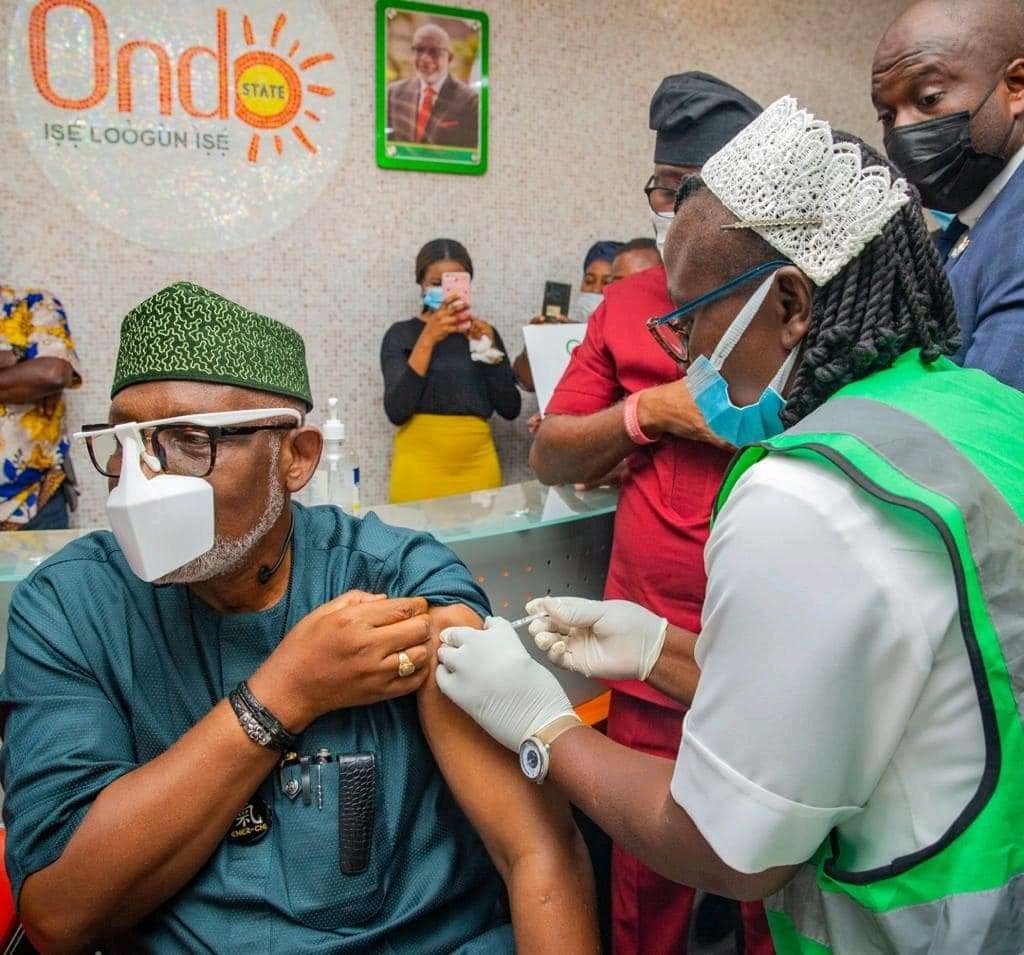
In September 2021, Rotimi Akeredolu, governor of the state, issued a two-week ultimatum for workers in the state to get the vaccine, saying vaccination cards will be required from civil servants before they can access some facilities. That was after the governor and his wife took the vaccine and jabs and urged the residents to shun unfounded rumours.
Owing to the low vaccination rate, in June 2022, the state government issued another directive for public officials to get the vaccine. Francis Faduyile, the special adviser to the governor on health, said only 16 percent of the eligible population in the state had been fully vaccinated while 30 percent were partially vaccinated.
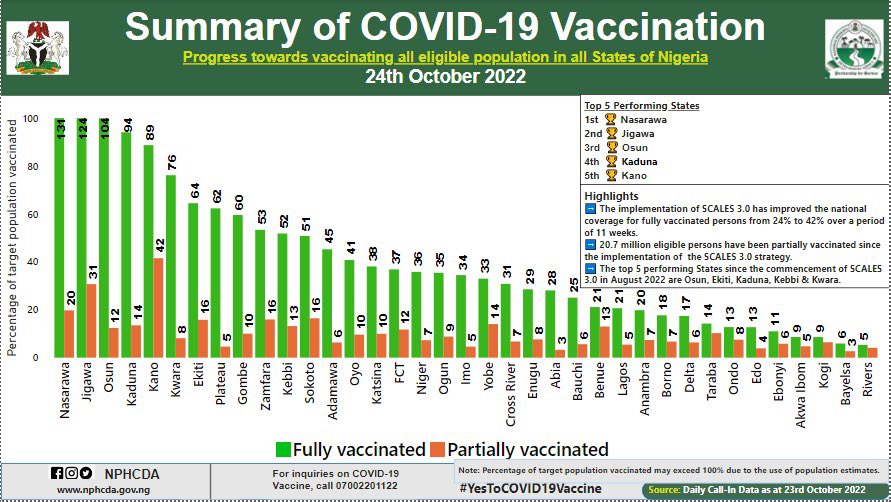
Recent data from the National Primary Health Care Development Agency (NPHDA) show that Ondo falls among the least-performing states in COVID-19 vaccination.
As of October 24, the NPHCDA stated that about 47.6 million Nigerians are fully vaccinated, which is 42 percent of the total eligible persons targeted for vaccination in Africa’s most populous nation.
Jide Famose, head of the department of primary health care in Ilaje, said there has been tangible vaccine hesitancy among the people and the vaccination rate in the LGA is less than 30 percent so far. The LGA has 15 COVID-19 vaccination sites, mainly at primary healthcare centres (PHCs).
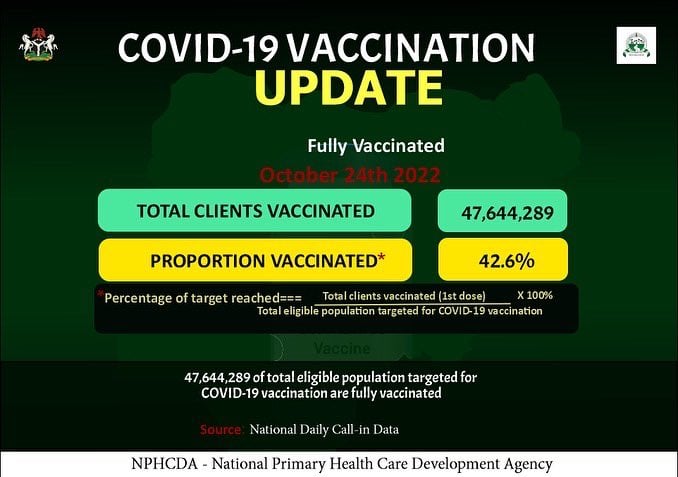
Famose, a medical doctor, further noted that the misconceptions about the vaccine contributed to the low rate of vaccination in the LGA. He said some people also believe that drinking the salty water from the Atlantic Ocean can help them fight against the vaccine.
“Initially, Ilaje had a very low infection rate. So many residents were not even interested in being tested and would not come out for the vaccine either. Then, we began a community outreach. We made use of community mobilizers who would move from house to house to enlighten the people about the vaccine. That was when we started seeing more people coming out to be vaccinated,” Famose said.
“However, the misconceptions are still there. Even when the state government announced a compulsory vaccination for all eligible persons, especially workers, some still did not take it. They said they won’t take it for the sake of their generation, that it is their body their choice.”
Sola Tomoloju, the social mobilisation officer for the LGA, and his team resorted to market jingles and community dialogues to encourage people to take the vaccine.
“We also went to the seashore to meet the fishermen as they returned from their expeditions to speak with them. We also went through the traditional rulers who had to get vaccinated just to convince their people that the vaccine is safe,” Tomoloju said.
The strategy deployed by Tomoloju’s team is in line with the COVID-19 mass vaccination campaign introduced by the NPHCDA in conjunction with state governments to boost access to vaccines in Nigeria.
According to the latest bi-weekly report of the Nigeria Centre for Disease Control and Prevention (NCDC), the country has recorded a total of 265,651 COVID-19 cases and 3,155 deaths since the outbreak began in 2020.
On March 2, 2021, Nigeria received its first batch of COVID-19 vaccines. Since then, the country has received millions of doses of the vaccine from AstraZeneca to Moderna, Johnson & Johnson and Pfizer.
CAN COVID-19 VACCINE CAUSE INFERTILITY?
In a series of posts, the NPHCDA noted that there is no evidence that the COVID-19 vaccine affects fertility and it does not alter the DNA.
“COVID-19 vaccine was not developed using controversial substances such as fetal tissues, implants, microchips or tracking devices. It was not developed to kill Africans. The vaccine used in Africa is the same being used in Europe, America and Asia. The vaccine does not affect one’s fertility,” the agency said.
This assertion is further corroborated by the US Centres for Disease Control and Prevention (CDC). The organisation stated that there is currently no evidence that vaccine ingredients or antibodies made following COVID-19 vaccination would cause any problems with conception at any point in one’s life.
Best Ordinioha, professor of community medicine and public health faculty of clinical sciences at the University of Port Harcourt (UNIPORT), said the disinformation around the vaccine is fostered by the “anti-vax movement” with the aim of discouraging people from being vaccinated.
He added that this is achieved through information warfare and organised campaigns against certain philanthropists whose donations ensured that COVID-19 vaccines are available to poor developing countries who may be unable to buy the vaccines.
“This huge philanthropic donation, which was done purely for humanitarian reasons, is now been posted on social media to have been made to allow Bill Gates to insert a microchip that bears the 666 mark of the beast into the recipients of the vaccines,” Ordinioha said.
“Continuous, honest and respectful dialogue, acknowledging the risks of a vaccine but balancing them against the risk of disease has been shown to be more fruitful. Do not spend excessive amounts of time debunking specific myths. This may have the opposite effect of strengthening the myth in the person’s mind; focus on the facts, simply identify the myth as false.”
The professor noted that vaccine hesitancy was identified by the World Health Organisation (WHO) as one of the top ten global health threats of 2019.
As the country continues to record a low infection rate, the fear of the virus seems to be dwindling and this is evident in the low turnout at the vaccination centres compared to when the jabs first arrived and restrictions were placed on unvaccinated residents. Now, everyone goes about their daily business.
The implication, Ordinioha said, is that it reduces herd immunity and the ability of the country to deal with future outbreaks of the disease.
Add a comment

